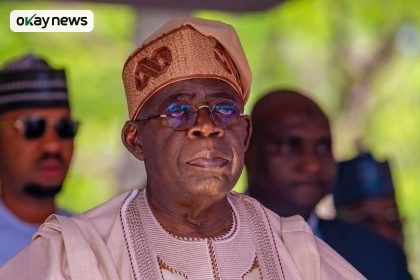The Federal Government of Nigeria has reaffirmed its commitment to ending the recurring collapses of the national power grid, a challenge that has weakened economic growth in Africa’s largest economy for more than a decade. This renewed assurance was emphasized by the Minister of Power, Adebayo Adelabu, during an engagement with journalists in Uyo, the capital of Akwa Ibom State, South South Nigeria, where the maiden retreat of the Nigerian Independent System Operator was taking place. Okay News reports.
The minister, who was represented at the event by the Permanent Secretary of the Ministry of Power, Alhaji Muhammadu Mamman, stated that the administration of President Bola Ahmed Tinubu began implementing reforms immediately upon assuming office, with the objective of stabilising the country’s fragile electricity grid. According to him, the establishment of the Nigerian Independent System Operator, known as NISO, stands as a major policy shift intended to change decades of inefficiencies in grid management.
He noted that Nigeria’s national grid, which supports over two hundred million citizens and thousands of industries, has suffered frequent breakdowns due to ageing infrastructure, inadequate funding, poor maintenance culture, and rampant vandalism. These collapses have triggered nationwide outages, forcing both households and businesses to rely heavily on generators, an alternative seen as expensive and environmentally damaging.
Adelabu explained, “Since the commencement of this administration as everybody knows, things have been going on differently. The creation of the Nigerian Independent System Operator (NISO) itself is something that government is doing differently to ensure grid stabilization, reduction in power outages and ensure that every Nigerian has access to electricity.”
He emphasized that the retreat was strategically designed to help NISO set a clear direction for its mandate and strengthen collaboration among its operators. He further stated, “This maiden edition of NISO retreat is an avenue for them to dialogue and ensure that they are doing things differently, unlike the way it was being done before and that is why we are here to support them to ensure that they succeed as an organization and make sure that the country gets adequate and stable power supply.”
In his remarks, the Chairman of the Board of Directors of NISO, Dr. Adesegun Akin-Olugbade, applauded the dedication and professionalism of the agency’s staff. He attributed the recent successful synchronisation of the Nigerian grid with the West African Power Pool to their commitment to excellence. He noted that the achievement linked the Nigerian grid with neighbouring countries such as Niger Republic, Benin Republic, Togo and extended to Mauritania within the West African region.
He said, “From the very beginning, NISO has been about people: the men and women who keep the grid stable, who ensure the market runs fairly, and who represent Nigeria with excellence in regional and international cooperation. It is because of your dedication that NISO is earning its place as a strong, credible, and forward-looking institution in the Nigerian power sector.
“Your efforts achieved what many considered impossible the successful synchronisation of the Nigerian grid with the West African Power Pool (WAPP). Through strengthened coordination, transparent communication, and the professionalism of our system operators, Nigeria’s grid together with Niger and parts of Benin and Togo was synchronised with the rest of West Africa, from Nigeria to Mauritania, operating seamlessly at a single frequency for four uninterrupted hours.”
Also speaking at the event, the Managing Director of NISO, Abdul Mohammed, explained that the organisation was created to complement government efforts by attracting private sector capital into the power sector. He acknowledged that although the Federal Government had made investments in power infrastructure, the funding was insufficient to achieve the level of reliability and stability required for a modern electricity grid.
He stated, “First and foremost, we have to understand that the power business is extremely capital-intensive. If you look at other jurisdictions where they have their power right, find out how much they have spent on an annual basis–a lot of money. We have not really spent so much as we should to really make the grid reliable, that is why NISO has been created.”
He emphasized that NISO’s task was not only to stabilise the grid but also to optimise all existing investments, saying, “We are complementing what the government is doing by attracting the private sector, so it is very important and we are doing everything possible to optimise the existing investment so there will be improvement going forward.”
The Governor of Akwa Ibom State, Umo Eno, represented by the State Commissioner for Power, Iniobong Robson, commended NISO for its early achievements. He described the organisation as one that has demonstrated clarity in its purpose and discipline in its operations, even though it is relatively new.







